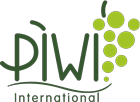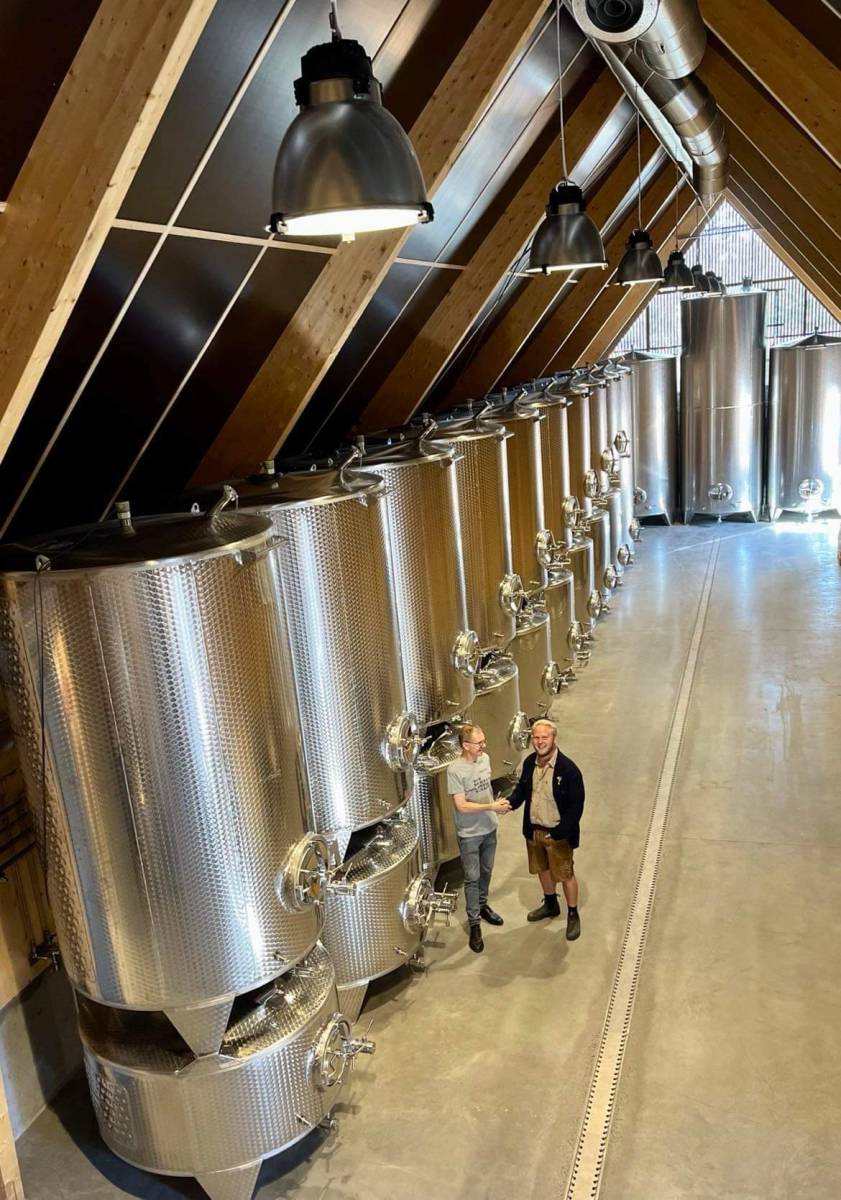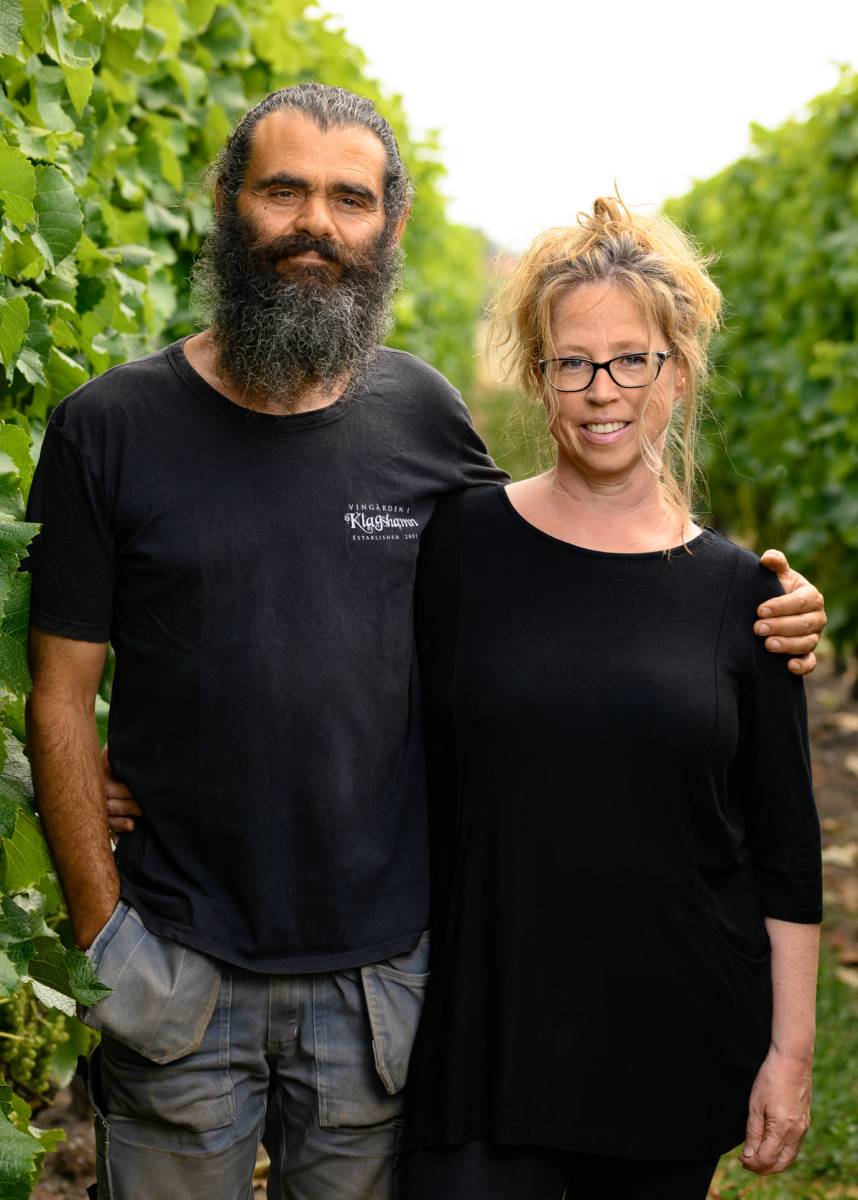Sweden
Contact
- Lena Sarnholm
Journalist & Sommelier WSET Level 3
+46 70 539 59 88
@sarnholmlena
I work part-time in a wine bar in Stockholm to keep in touch with reality and what's going on. I also organize tastings and do some consulting work.
Lena Sarnholm
We are now launching a local chapter for Sweden to promote our wines on a larger scale and collaborate on home ground. Join us and become a member of PIWI International

News
Sweden says yes to farm sales of wine
First things first: after years of investigations, the Swedish government has put forward a watertight proposal to allow farm sales – that is, wine producers to sell their wines to visitors. Sweden has had an alcohol monopoly since 1955 and the issue has always been controversial, but with more commercial growers and a growing interest in domestic wine, the government has now come up with a third proposal that looks set to become a reality in spring 2025.
Swedish wine industry goes international
This summer, Sweden will have its own 1976-style ”Paris tasting”, setting Swedish wines against international ones. The tasting is part of the effort to market Swedish wine internationally. All under the name The Swedish Wine Tasting 2024.
Sweden is working to get PGI
Big investment at Kullaberg – new winery for 100,000 bottles
While the harvest was still in progress, Scandinavia's most serious investment in wine production was inaugurated - a new winery at Kullabergs Vingård with a capacity for 100,000 bottles per year.
– Beverage is an important part of Skånes gastronomy, and it is important that we have people who dare to invest and work hard, said governor Anneli Hulthén, who cut the blue and yellow ribbon.
The building, planned since 2017 with construction starting exactly two years ago, resembles a typical quadrilateral local farm and, like everything else in the business, has an environmental focus.
– With a frame made of glulam and walls made of solid wood, we live up to our requirements for sustainability, said architect Paulina Berglund, also part of the owner couple behind Kullabergs Vingård.
Medals are almost becoming commonplace for Fredholms Vingård in Sweden.
They have only 1800 vines and got 96 points at PIWI International Challenge 2022 for their Solaris ”Elsa” – one of ten wines awarded Top Gold.
Medals are almost becoming commonplace for Fredholms Vingård in Sweden.
– It is the first time that we are submitting wine to a competition solely for PIWI. Previously we’ve wanted to compare ourselves to other wines, says Pär Fredholm at Fredholms Vingård.
The wine „Elsa“, a 100% Solaris that was first released in 2017, has previously been awarded four great golds, five golds and one silver at competitions in Spain, Germany and France. The wine has a couple of days of maceration with one third in French oak barrels before final aging for seven months in steel tanks.
– Internationally, „Elsa“ has always received over 90 points. It’s amazing that it can performs so well everywhere, all the time. Why? I think that part lies in the minerality, the saltiness and the high pH – the acid never becomes aggressive, says Pär Fredholm.
Fredholms Vingård is located, like most wineries in Sweden, in Skåne in the very south. The couple Jenny and Pär Fredholm started in typical Swedish manner on a small scale with red grapes. 25 Rondo cuttings were planted in 2002. Pär Fredholm shakes his head:
– Rondo is not our favorite grape, but at the time everyone here wanted to make red wine. However, it didn’t take long before people realized that the wine from Rondo was not that good, but that white was better suited.
However, he is much more fond of Siramé, which he hopes will get more attention in Sweden.
– It’s a fantastic grape that rarely gets sick. It’s a shame it isn’t more popular. We use it in our rosé together with Rondo, where the latter works better.
Fixed focus is Solaris. The first cuttings were planted in 2008, but it is only from vintage 2017 – the premiere vintage of the prize-winning wine „Elsa“ – that they think they have gotten to know the grape and know how to treat it.
– We prune hard for low yield, around 0.8–1 kilo per log. In the winery, we let the grape skins macerate for a couple of days before fermentation, partly to raise the pH value. Acid is indeed the backbone of all wines, but it can also be the winemaker’s worst enemy.
The 2022 harvest has just finished, and Pär and Jenny Fredholm are satisfied with the vintage, which, however, got off to a tentative start with a cold spring and early summer.
– Then came the heat – but no rain, so some here had problems with stress in their vines. Ours could handle it, so we got a normal maturity and about 13 degrees alcohol, says Pär Fredholm.
Though, he emphasizes the importance of not only looking at Oechsle. You have to look at the whole, not least the phenolic maturity.
To return to „Elsa“ and the structure behind the success. The typical saltiness and minerality – call it energy – which only seems to become more and more prominent, Pär Fredholm finds the answer in the soil. The vineyard has volcanic soil and is located near an old lime quarry.
– Now the roots are starting to dig deep and can reflect the terroir.
And why the name Elsa? After their beloved black labrador of course, always present in the vineyard to contribute positive energy to vines as well as followers on social media.
Harvest report from Sweden: Late flowering – late harvest
The spring was late and cold, which means a later harvest and slightly less fruit. But the quality of the Swedish grapes is reported to be good.
The Swedish winegrowers are preparing for harvest. As in the rest of Europe, the summer was hot and dry (but without an extreme heatwave). However, a cold May and thus flowering means that the harvest takes place slightly later compared to last year, plus there will be a few fewer grapes.
At Kullabergs Vingård in southwestern Sweden, their harvest of PIWI is expected to begin in October.
– The cool and late flowering means that we have a slightly smaller amount of fruit this year. But the summer was hot and dry so it looks good, says winemaker K Felix G Åhrberg, who came to Kullaberg in 2017 after working abroad. He is a trained oenologist at Klosterneuburg in Austria.
Kullaberg grows six primary varieties – Solaris, Souvignier Gris, Muscaris, Donauriesling, Pinot Nova and Cabernet Noir – but also has experimental cultivation with around 20 varieties to see what works. Until now, the focus has been on the Swedish „national grape“ Solaris, but K Felix G Åhrberg strongly believes in the new PIWI generation of blue varieties.
– In my opinion, Rondo and Regent give a bit of foxy flavor – it’s kind of like running Windows 95 on your computer. Pinot Nova and Cabernet Noir I like a lot, he says.
Pinot Nova (Blauer Burgunder x Malverina) is related to Pinot Noir and comes from Austria; Cabernet Noir is an offspring of Cabernet Sauvignon and was cultivated by Valentin Blatter in Switzerland in 1991.
Kullaberg is Sweden’s largest investment winery with a total of 14 hectares. The soil is mostly sand-mixed clay with one of the country’s oldest rock types, the pink-toned diabase Kullait. The location right by the sea is also favorable:
– We are surrounded by three seas, Öresund, Skälderviken and Kattegatt. This means that we have a mild climate with a long growing season.
A new circular winery built of wood will be inaugurated at the end of October.
– We have solar cells and our own water which we reuse. It’s 2.000 square meters and the capacity will be 100,000 bottles. Last year we made 32,000.
Just outside Malmö in the south you’ll find Vingården i Klagshamn, founded in 2001 and one of the pioneers in Swedish viticulture. Murat Sofrakis and Lena Jörgensen have 1.8 hectares, 80 percent Solaris.
– For our part, it was a cold spring with a late flowering at the end of June, and beginning of July. When summer came, it became dry – the plants were stressed, so now we are a little behind compared to previous years. We usually harvest in mid-September but are still waiting to get started.
Lena Jörgensen confirms the increased interest in Swedish wine.
– Absolutely. There is greater demand and we sell out. We accept pre-booked groups and this year we have been full. It’s a new category of people coming now, wine geeks with a solid interest.
Photos:
• The new cellar at Kullabergs Vingård, with steel tanks from Ledinegg, Austria.
• Murat Sofrakis and Lena Jörgensen, Vingården i Klagshamn.
Swedish viticulture with PIWI
In just over 20 years, Swedish viticulture has gone from being a hobby to a commercially recognized player with wines that win international prizes and reputation – thanks to the hardy PIWI grapes.
Sweden has around 50 commercial vineyards and nearly 200 hectare under vines. The main grape is Solaris – roughly 80% – followed by Rondo; both established PIWI varieties.




